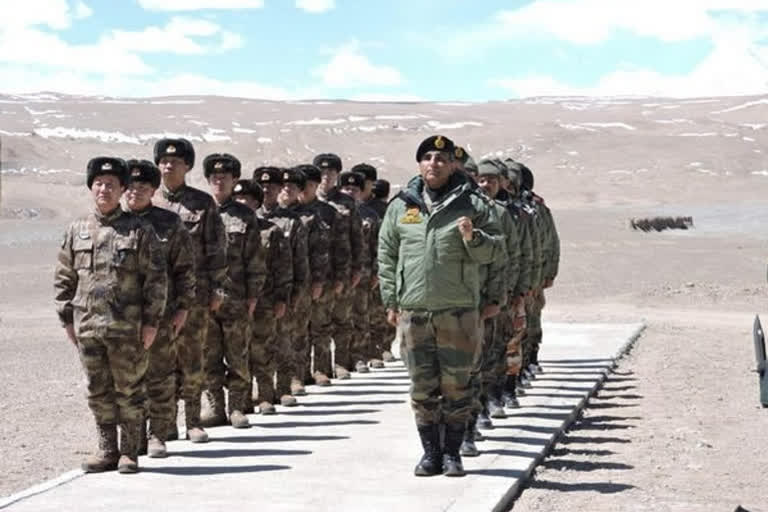New Delhi: With the terms of India-China border engagement undergoing a sudden change due to an escalating border row, and all established mechanisms failing to resolve the growing conflict thus far, the Line of Actual Control (LAC), the de facto border with China, is moving towards becoming the new Line of Control (LoC).
The LoC or the de facto border between India and Pakistan is considered a ‘hot’ border as there is open hostility with the resorting to exchange of firepower in violation of a cease-fire agreement signed between the two countries in 2013.
Mutual understanding and stated terms of engagement had kept the LAC free of open conflicts for decades. But gunshots fired on Monday (September 7) in the vicinity of the Mukhpari mountain near Rezang La on the southern bank of the Pangong Tso had broken one vital mutually-agreed commitment—not to use weapons come what may.
In fact, border patrol teams were either unarmed or carried the gun with its barrel pointed downwards.
A senior defence official told ETV Bharat: “Another new norm is that most movement is undertaken by the PLA in the night. In the dark, it is difficult to make out whether men are being ferried in or equipment is being mobilized.”
“We see a lot of these trucks and heavy vehicles moving to the PLA positions like the southern bank of the Pangong Tso at night and it can only be for tactical reasons.”
READ: US to ASEAN: Reconsider deals with blacklisted China firms
“Night-time movement was a strict no-no on the LAC until the latest row broke out and has now spiralled into a major confrontation,” the official added.
India and China have together mobilised more than 1,00,000 soldiers on both sides of the LAC and in-depth areas besides military equipment including artillery guns and tanks. Air assets have also been deployed.
Unconfirmed reports speak of Chinese Y-20 military transport aircraft airdropping paratroopers, heavy guns, infantry combat vehicles near new positions in-depth areas of the LAC set up by the PLA.
Another serving officer who was posted near the LAC said: “It is not that confrontations were not there earlier in the disputed stretches. But there was a laid down drill. Banners would be displayed and both sides would retrace their steps backwards. But what is new this time is that PLA is refusing to step back.”
“And that is why, if things continue like this, the border with China may resemble the border with Pakistan.”
Another worrying fact is the close cooperation and camaraderie between China and Pakistan.
A recent report speaks of the PLASSF (PLA Strategic Support Force) setting up an office in Pakistan with cyber warfare, electronic warfare and high-tech reconnaissance facilities.
Since March 2020, a colonel-ranked officer from the Inter-Services Intelligence (ISI), Pakistan’s intelligence agency, has been posted with the PLA’s Joint Staff Department, in the PLA headquarters in Beijing, ostensibly for purposes of 'better coordination'.
READ: Indian army denies evacuation of villages on China border



